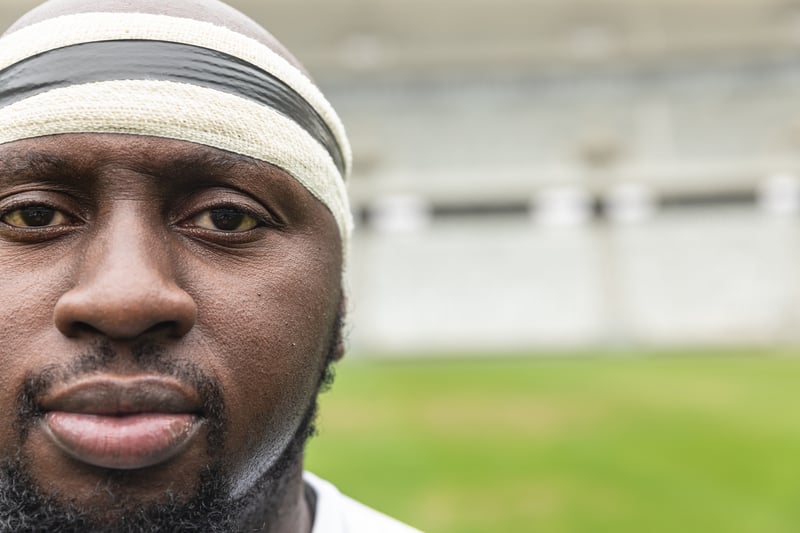
During a netball game, there are four quarters that last 15 minutes each. The game is won by the team with the most goals. The rules of netball have been designed to make the game enjoyable and safe. New players and referees can find the rules confusing. This article will present a summary of the fundamental rules of netball as well as explain how each rule affects your game.
The ball must be passed within three seconds of it being caught. Similar to the previous rule, a player must not hold onto the ball longer than 3 seconds. If the ball touches anything other than the court or the ground, the ball is out of play. A player who catches the ball outside the centre circle must keep their landing foot at least six inches from the line. A missed shot is considered a "free pass". The ball is considered "replay" when it is caught and returned to the other team.
At any given time, there are seven players on court. Only three player revolving substitutions are permitted, and substitutions can only be made during half time. Substitutions are not allowed if a player is hurt. If the substitution occurs while a player is on the ground, the substitution will be considered foul play.

All goals must be scored within the opponent's goal circle. The goal defense must stop the shooter from scoring the goal. If the ball is caught outside of the goal circle, it is considered "replay". Although a player can leap from the goal third, he or she must remain within three feet (or less) of the centre. Fumbling while gaining possession of the ball does not count as a replay.
It is important to use defensive strategies to stop other teams from getting the ball. This means that players can't dribble the ball out of bounds and they cannot enter the zone if the ball is moving. They can't move out of the area unless they are within the defensive third.
There are also specific rules regarding obstructions. If a player tries to block or defend the ball, they must be at least three feet away from the player who is holding the ball. A penalty pass will be given to them if they fail to comply. They may enter the zone only if they touch or dribble the ball with one foot.
A centre pass is the most commonly used method of obtaining possession of the ball. If a centre pass has been received, the centre must remain in the circle. When the ball moves, the defenders must also enter the zone.

Players must immediately make a move to get onside after receiving a central pass. The player will be penalized if the ball isn't caught in three seconds. A free pass will be granted to the player who has broken the centre pass. A player who regularly breaks the centre pass should be given guidance, and may be penalised.
FAQ
What happens if someone falls off a cliff while doing extreme sports?
Extreme sports may cause injuries if you tumble off a rock face.
This injury is very serious. If you fall from more than 30 metres (100 feet), you could get serious injuries.
Extreme sports can be dangerous.
Participating in extreme sports can lead to many different scenarios. From falling off cliffs, getting injured, or being caught by the press.
There should be no problem if people are aware of the risks and take precautions.
It's enough to ensure that you have the right equipment.
If you get hurt while participating on an extreme sport, someone will be there to assist you. Medical treatment will be provided if you are hurt.
Sometimes injuries occur without warning. Sometimes, it's because of poor judgment.
You might fall if you try to climb too close a cliff edge. Hypothermia might also occur when you jump in icy water.
Sometimes, mistakes of others can lead to accidents. In some cases, other participants cause injury.
Bad luck can sometimes lead to accidents. You might fall on a rock, or you could hit it. You may also be struck by lightning.
What makes a sport extreme
Since ancient times, sports have existed. They've evolved from being purely athletic competitions to becoming full-fledged entertainments. Some sports have become part and parcel of our culture.
Because of the high level of competition, some sports can be considered extreme. Pro basketball players, for example, play against one another almost every day for many hours. Other sports are considered extreme due to the need for special equipment. Snowboarding, for instance, is riding down hills on boards that have two wheels attached to their bottoms.
Some sports are extreme simply because they have different rules. For example: Soccer is played differently from American football.
Some sports are considered extreme because their participants are required to perform feats of athleticism. Gymnastics, for example, can be very difficult as the athletes balance on different objects and avoid falling.
What are extreme sports?
Extreme sports include skydiving, bungee jumping, hang gliding, snowboarding, surfing, paragliding, sky diving, and other adventure sports.
They're popular because they let people experience adrenaline-pumping thrills while not putting themselves in danger.
Extreme sports can be seen as fun and challenging, rather than dangerous.
Skiing is by far the most popular extreme sport. Skiing has existed for thousands of centuries, but it wasn't until early 1900s that it was recognized as an important form of winter recreation.
Skiing is one of today's fastest-growing sport, with over 4 million people participating each year.
Statistics
- Based on the degree of difficulty, the routine is scored on form and technique (50 percent), takeoff and height (20 percent), and landing (30 percent). (britannica.com)
- Approximately 50% of all wakeboarders have been participating in the sport for 1-3 years. (momsteam.com)
- According to the United States Parachuting Association, about 21 people die yearly from skydiving. (livehealthy.chron.com)
- Boxing— 90% of boxers suffer brain damage over their careers, and this is not surprising in the least, considering that they are throwing punches at each other's heads. (rosenfeldinjurylawyers.com)
- Landscaping and grounds-keeping— according to government labor statistics, about 18 out of 100,000 workers in the landscaping industry are killed on the job each year. (rosenfeldinjurylawyers.com)
External Links
How To
How can you master parkour skills?
Parkour, a form of free running, is where people run across obstacles such as walls and buildings. Parkour is a popular sport with millions of people around the world. There are many types of parkour, including wall climbing, obstacle course and freestyle.
You can define fitness as any activity that improves your physical fitness or overall health. It could mean going to the gym or walking. Parkour is considered a sport because it requires that athletes use their body strength and speed as well as coordination and agility.
Here are some tips and tricks for those who wish to learn parkour.
-
Avoid places with stairs or other hazards. Avoid hills, choose flat ground and climb trees if possible.
-
Proper footwear is made of leather or rubber. If you're not sure what shoe will work best for your feet, feel free to try them all. The right shoes are crucial for a successful parkour session.
-
You can bring water bottles or snacks with you to keep hydrated during practice sessions.
-
Warm up before starting any parkour sessions. This means you should warm up your muscles before jumping into the action. You can start slow and increase the intensity gradually until your muscles are fully prepared.
-
Do not rely too much on your arms and legs when jumping. Instead, you should focus on your core and back muscles to jump over obstacles.
-
Don't push yourself too hard; instead, take breaks every now and then. This allows you to recover quickly from the exercise without getting injured.
-
While practicing parkour, listen to music. Music helps you relax and concentrate better.
-
Stretch your muscles and joints after each session to prevent injury.
-
When you are exercising in public, make sure to keep your hands clean. You won't endanger another person by doing this.
-
You can track your progress by writing down your performance in an journal. You'll be able to remember your strengths as well as your weaknesses.
-
Parkour is meant to be enjoyed. Don't let fear of losing your balance stop you from enjoying the parkour experience. Take a step back if you do fall.
-
Every day, learn new techniques and tricks.
-
You should eat healthy foods. A diet high in protein will help you gain muscle mass faster.
-
Look for a mentor. Mentors teach you how certain moves are made and also offer guidance on improving your skills.
-
Ask questions! You will find fellow enthusiasts love to learn new things. If you have any questions, don't be afraid to ask!
-
Practice makes perfect. So go ahead and train whenever you can.
-
Have fun
-
Stay safe, last but not the least!